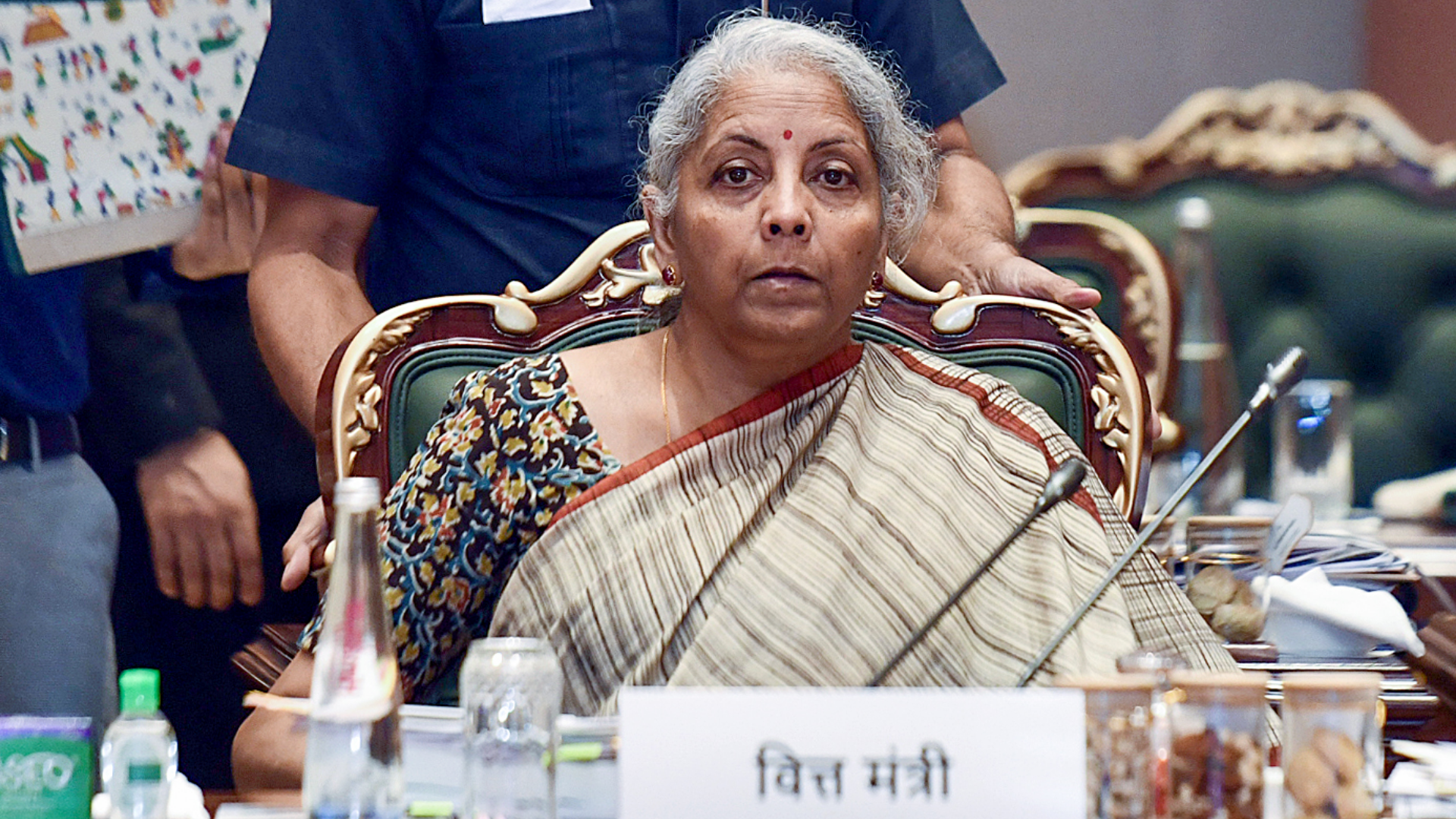The Goods and Services Tax (GST) Council convened today in New Delhi after an interval of over eight months, focusing on pivotal reforms and addressing critical challenges in India’s indirect tax regime. The meeting aims to fortify the tax framework, streamline regulations, and enhance ease of business across sectors.
During the 53rd GST Council Meeting, Union Finance Minister Nirmala Sitharaman announced that the Council proposed a consistent GST rate of 12% for all milk cans made of steel, iron, or aluminum, regardless of their intended use. This measure aims to prevent disputes related to their classification as milk cans. Additionally, the Council suggested a uniform GST rate of 12% for all carton boxes, including both corrugated and non-corrugated paper or paperboard cases. This decision is expected to particularly benefit apple growers in Himachal Pradesh and Jammu & Kashmir. Furthermore, the Council clarified that all types of sprinklers, including fire water sprinklers, will also attract a GST rate of 12%.
#WATCH | On the 53rd GST Council Meeting, Union Finance Minister Nirmala Sitharaman says, “Council recommended to prescribe a uniform rate of 12% on all milk cans meaning steel, iron, aluminum which are irrespective of the use. They are called milk cans but wherever they are used… pic.twitter.com/csf4Nmx2n3
— ANI (@ANI) June 22, 2024
Advertisement · Scroll to continue
#WATCH | Delhi: Union Finance Minister Nirmala Sitharaman says, “The time limit to avail input tax credit in respect of any invoice or debit note under section 16(4) of the CGST Act filed up to the 30-11-2021 for the financial years 17-18, 18-19, 19-20 and 20-21 may be deemed to… pic.twitter.com/5nSuHlPn6r
— ANI (@ANI) June 22, 2024
In discussions with state finance ministers ahead of the budget, Sitharaman stressed the government’s proactive steps to aid state finances and spur economic growth. She highlighted the importance of the ‘Scheme for Special Assistance to States for Capital Investment’, noting that while most loans are unconditional, some hinge on states implementing citizen-centric reforms and specific capital projects.
Encouraging states to leverage these loans by meeting set criteria, Sitharaman emphasized their role in advancing developmental projects across sectors. Several states appreciated the initiative and offered suggestions for its improvement.
Additionally, She also stated that “Bihar Deputy Chief Minister Samrat Choudhary has been made the Chairman of GoM of Rate Rationalisation. In the next meeting, Samrat Choudhary will submit a status quo report on the work done for the rate Rationalisation. After that, we will start work on start rate Rationalisation”.
On the 53rd GST Council Meeting, Union Finance Minister Nirmala Sitharaman says “Bihar Deputy Chief Minister Samrat Choudhary has been made the Chairman of GoM of Rate Rationalisation. In the next meeting, Samrat Choudhary will submit a status quo report on the work done for the… pic.twitter.com/zlcRUB6xZr
— ANI (@ANI) June 22, 2024
In a significant relief measure, hostels located outside educational institutions for students are now exempt from GST, provided the rent does not exceed Rs 20,000 per person per month and the minimum stay is for 90 days.
Furthermore, the Council extended the deadline for filing GSTR4 till June 30 from the fiscal year 2024-25 onwards. It also introduced functionality in GSTR1A to rectify omissions in GSTR1, facilitating smoother compliance processes.
To mitigate litigation, the Council recommended revised limits for filing appeals: Rs 20 lakh for the appellate tribunal, Rs 1 crore for the High Court, and Rs 2 crore for the Supreme Court.
Addressing concerns over fake invoicing, Sitharaman announced the phased rollout of biometric authentication nationwide. This measure aims to curb fraudulent practices and ensure the integrity of GST registrations.
The Finance Minister emphasized that these decisions reflect the government’s commitment to simplifying tax structures, promoting compliance, and fostering economic growth.
The 53rd GST Council meeting, attended by Union Minister of State for Finance Pankaj Chaudhary, Chief Ministers, Deputy Chief Ministers, Finance Ministers of states and Union Territories, along with senior government officials, marks a crucial step towards enhancing India’s indirect tax regime.
Today’s meeting, held after an eight-month gap since the last session in October 2023, sets the stage for further discussions at the mid-August meeting to address pending agenda items. The Finance Minister also addressed states’ concerns about compliance and tax administration, assuring GST assessees of ongoing efforts to introduce new compliance measures for smoother processes and enhanced transparency.
The meeting also deliberated on bringing petrol and diesel under GST. Sitharaman clarified the Centre’s intent on this matter and urged states to collaborate in deciding the GST rate for fuels. A Group of Ministers (GoM) will present recommendations at the August GST Council meeting.
#WATCH | On being asked about bringing fuel under GST, Union Finance Minister Nirmala Sitharaman says “…At the moment, the intention of the GST as it was brought in by former Finance Minister Arun Jaitley is to have the petrol and diesel in GST. It is up to the states to decide… pic.twitter.com/SoKpm3hlbI
— ANI (@ANI) June 22, 2024
The meeting was attended by Union Minister of State for Finance Pankaj Chaudhary, Chief Ministers from Goa, Meghalaya, Mizoram, Nagaland, and Sikkim, and Deputy Chief Ministers from Bihar, Madhya Pradesh, Odisha, Rajasthan, and Telangana. State finance ministers, other ministers, senior officials from states and Union Territories with Legislature, and representatives from the central government were also present.
The outcomes of today’s deliberations will shape the Union Budget for the upcoming fiscal year, reflecting collaborative efforts between the Centre and states to strengthen economic resilience and governance frameworks nationwide.




















